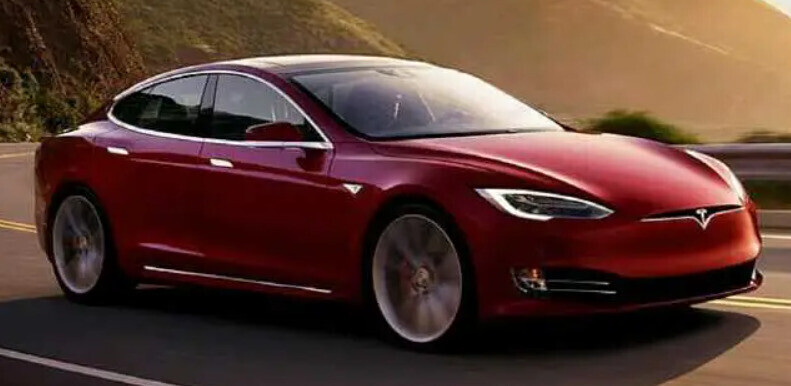hankyoreh
Links to other country sites 다른 나라 사이트 링크
S. Korean battery industry reacts to Tesla’s switch to low-cost Chinese batteries

Major Korean battery makers are scrambling in the wake of Tesla’s announcement that it will be installing low-cost lithium iron phosphate (LFP) batteries in its standard-range electric vehicles (EVs).
Domestic companies mainly produce mid- to high-priced batteries, meaning they could lose the low-cost battery segment to Chinese competitors. How each company is responding to this challenge is fueling interest.
Jang Seung-se, executive vice president for business strategy at LG Energy Solution — which holds the second-largest share of the global market for EV batteries — spoke at an earnings presentation on Monday, saying, "LFP batteries boast cost competitiveness but are also heavy with low energy density, and this is disadvantageous for fuel efficiency."
"We are developing a low-cost battery that can overcome weaknesses such as fuel economy without the need for expensive cobalt."
Releasing its third-quarter earnings last week, Tesla said the LFP battery it wants to use in its entry-level EV (standard range model) has inexpensive iron and phosphorus added to the positive electrode. The battery’s lower energy density makes it worse for driving range than batteries made by Korean companies — which use non-ferrous metals like nickel, cobalt and manganese for cathode materials — but is cheaper and more stable.
LFP batteries are mainly produced by Chinese companies such as world-leading Contemporary Amperex Technology (CATL) and fourth-ranked BYD. For this reason, the stock prices of Korean battery makers all finished weak after Tesla's announcement over fears of job losses to China.
Yet LG showed a competitive hand by announcing plans to develop its own low-cost battery instead of the LFP model. Development is focused on raising price competitiveness by snubbing expensive cobalt as a cathode material and instead using more of the cheaper manganese.
This strategy is similar to that of fellow battery manufacturer Samsung SDI. "We are not considering the development or mass production of LFP batteries," the company said. "Just like LG, we are developing our own battery that does not use cobalt."
A battery sector pundit added, "Chinese-made LFP batteries have a price advantage, but their potential has a ceiling because of technological limits to increasing energy density."
In contrast, SK On, an affiliate of SK Group's battery unit, is positively weighing developing LFP batteries. Early this month, SK On CEO Jee Dong-seob told Reuters that his company is considering developing such batteries.
"There is demand for LFP batteries not only for use in entry-level EVs but also electric trucks and buses," an SK On source added. "With commercialization in mind, we are internally considering whether to pursue full-scale development."
On the same day, LG Chem, the parent company of LG Energy Solution, announced sales of 10.61 trillion won (US$9 billion) in the third quarter, up 41% from the same quarter last year, but reported a 20% drop in operating profit to 730 billion won (US$625 million). This is because LGES posted a loss of 370 billion won (US$316 million) in the third quarter, reflecting the 620 billion won (US$530 million) cost of recalling the Chevrolet Bolt EV over a battery defect.
By Park Jong-o, staff reporter
Please direct questions or comments to [english@hani.co.kr]

Editorial・opinion
![[Editorial] Penalties for airing allegations against Korea’s first lady endanger free press [Editorial] Penalties for airing allegations against Korea’s first lady endanger free press](https://flexible.img.hani.co.kr/flexible/normal/500/300/imgdb/original/2024/0502/1817146398095106.jpg) [Editorial] Penalties for airing allegations against Korea’s first lady endanger free press
[Editorial] Penalties for airing allegations against Korea’s first lady endanger free press![[Editorial] Yoon must halt procurement of SM-3 interceptor missiles [Editorial] Yoon must halt procurement of SM-3 interceptor missiles](https://flexible.img.hani.co.kr/flexible/normal/500/300/imgdb/child/2024/0501/17145495551605_1717145495195344.jpg) [Editorial] Yoon must halt procurement of SM-3 interceptor missiles
[Editorial] Yoon must halt procurement of SM-3 interceptor missiles- [Guest essay] Maybe Korea’s rapid population decline is an opportunity, not a crisis
- [Column] Can Yoon steer diplomacy with Russia, China back on track?
- [Column] Season 2 of special prosecutor probe may be coming to Korea soon
- [Column] Park Geun-hye déjà vu in Yoon Suk-yeol
- [Editorial] New weight of N. Korea’s nuclear threats makes dialogue all the more urgent
- [Guest essay] The real reason Korea’s new right wants to dub Rhee a founding father
- [Column] ‘Choson’: Is it time we start referring to N. Korea in its own terms?
- [Editorial] Japan’s rewriting of history with Korea has gone too far
Most viewed articles
- 160% of young Koreans see no need to have kids after marriage
- 2Hybe-Ador dispute shines light on pervasive issues behind K-pop’s tidy facade
- 3Months and months of overdue wages are pushing migrant workers in Korea into debt
- 4Presidential office warns of veto in response to opposition passing special counsel probe act
- 5[Editorial] Penalties for airing allegations against Korea’s first lady endanger free press
- 6Inside the law for a special counsel probe over a Korean Marine’s death
- 7[Reporter’s notebook] In Min’s world, she’s the artist — and NewJeans is her art
- 8Japan says it’s not pressuring Naver to sell Line, but Korean insiders say otherwise
- 9[Exclusive] Hanshin University deported 22 Uzbeks in manner that felt like abduction, students say
- 10At heart of West’s handwringing over Chinese ‘overcapacity,’ a battle to lead key future industries